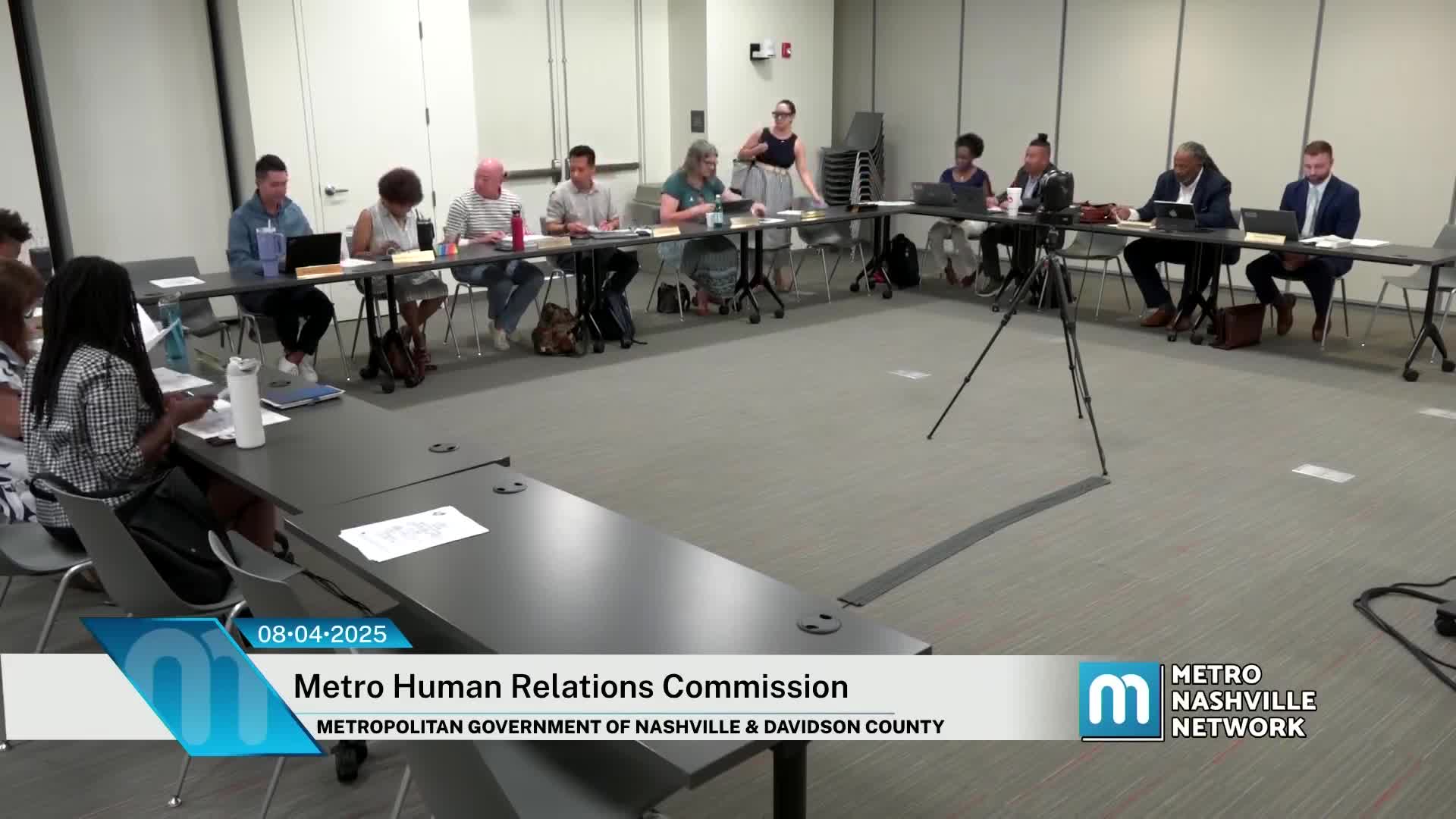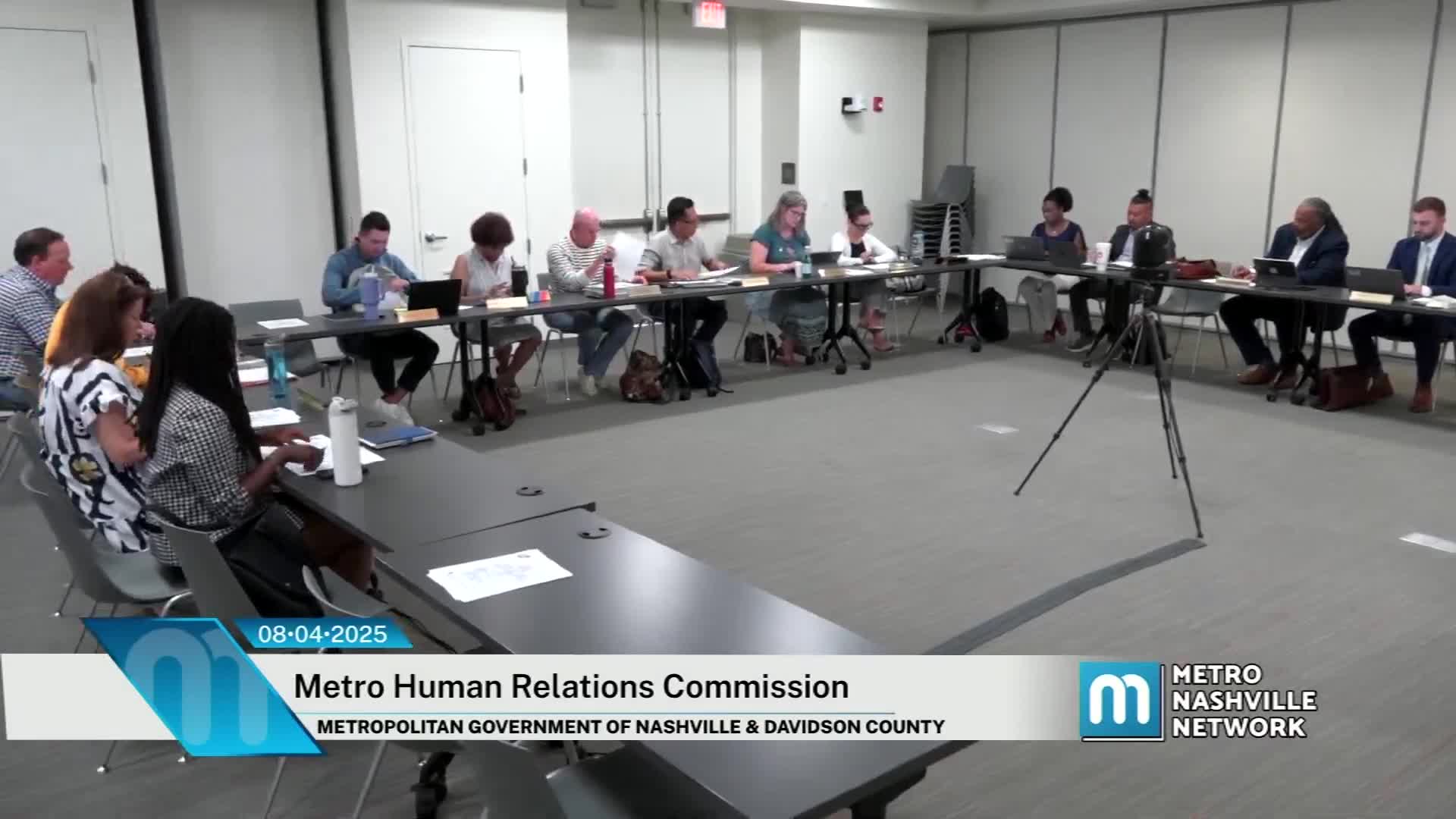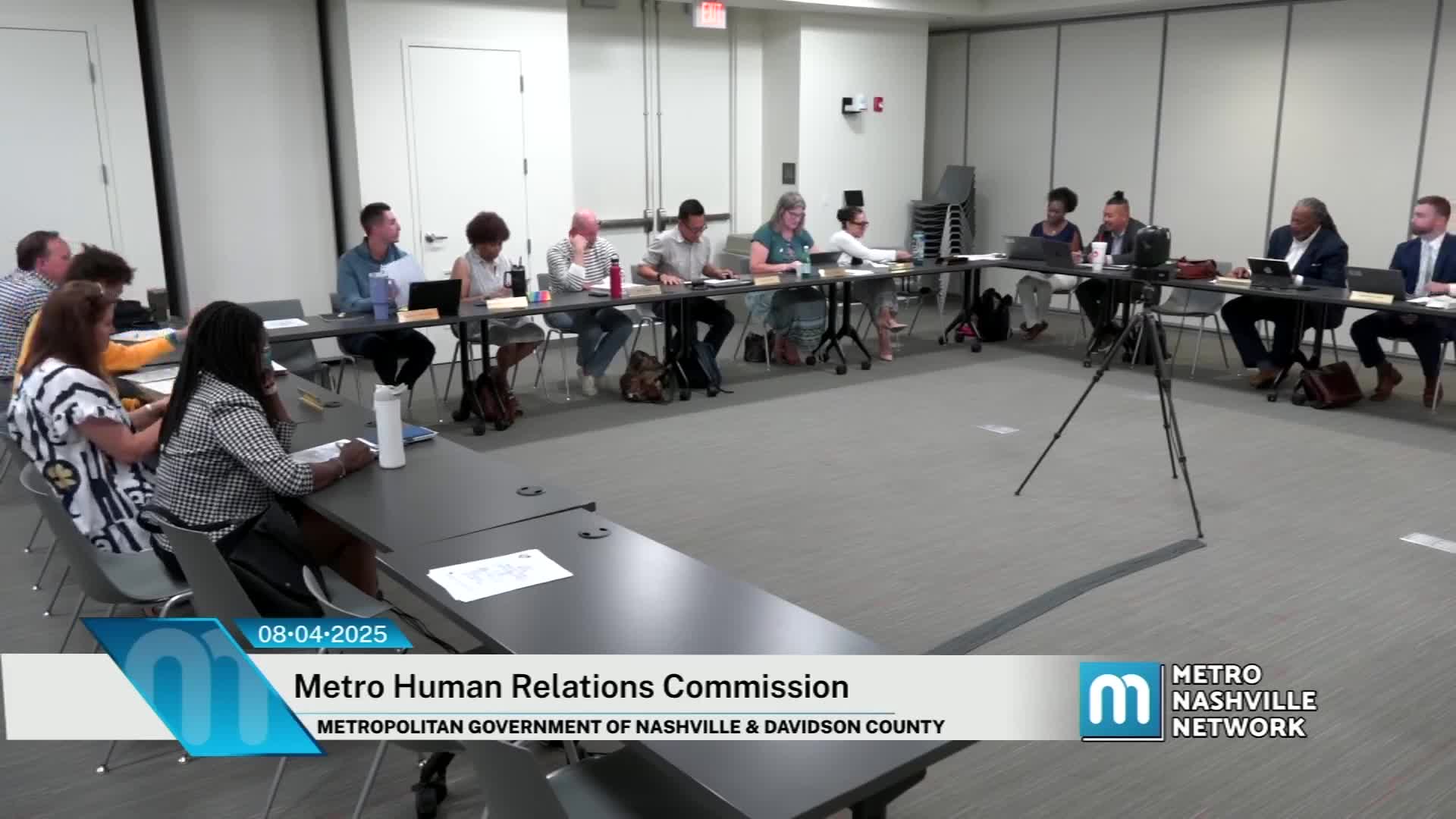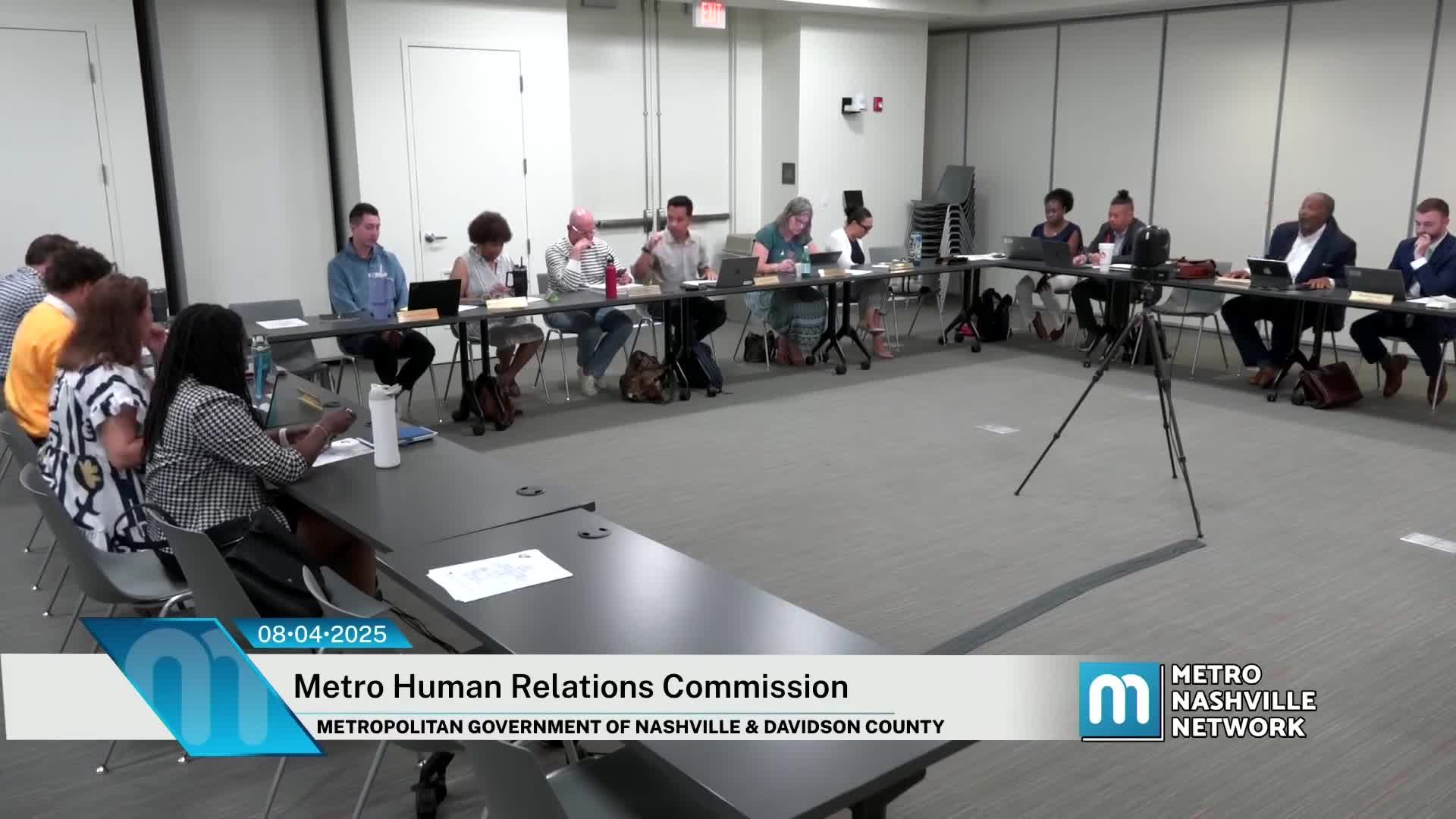Article not found
This article is no longer available. But don't worry—we've gathered other articles that discuss the same topic.

Human Relations Commission approves minutes, adjourns meeting

Commission highlights 'No Hate on My Plate' events and seeks school partnerships

Commission seeks nominations for procurement standards board seat formerly held by Larry Turner

Commission hears staffing updates; payroll and departure questions follow budget review

